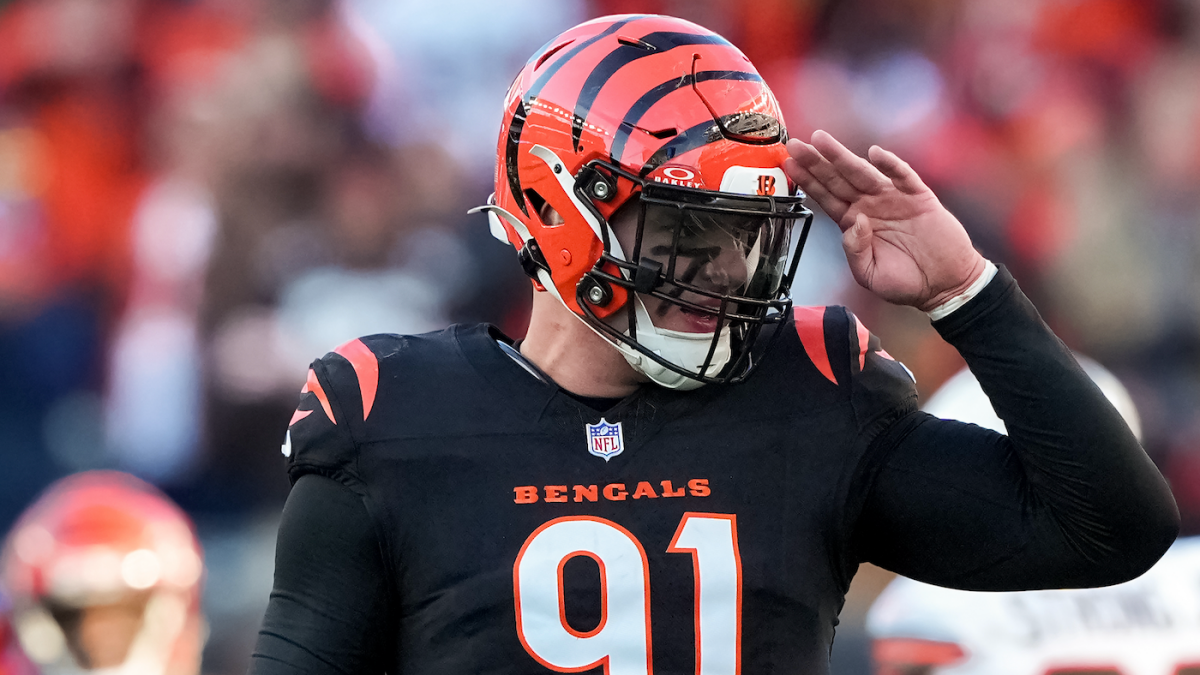The Trey Hendrickson Contract Stalemate: A Crucial Crossroads for the Bengals
The Cincinnati Bengals find themselves at a critical juncture, navigating the treacherous waters of contract negotiations with star defensive end Trey Hendrickson. This isn’t merely a financial dispute; it’s a microcosm of the NFL’s complex economic landscape, where player value, team philosophy, and long-term strategy collide. The outcome will shape the Bengals’ immediate future and set a precedent for how they approach high-stakes contract negotiations in the years to come.
The Core of the Conflict: Value vs. Risk
At the heart of this impasse lies a fundamental disagreement about Hendrickson’s worth. The 30-year-old defensive end, who led the league in sacks last season, believes his production and leadership warrant a long-term contract reflecting his status as an elite pass rusher. His absence from voluntary workouts this offseason underscores his seriousness about securing a deal that meets his expectations.
The Bengals, however, are grappling with the realities of investing in a player on the wrong side of 30. NFL teams are increasingly cautious about committing significant long-term money to players in their thirties due to the heightened risk of decline, injury, and diminishing returns. The Bengals have already allocated substantial resources to their high-powered offense, securing the futures of star wide receivers Ja’Marr Chase and Tee Higgins. Allocating another massive chunk of cap space to a defensive player, especially one whose prime years may be numbered, could limit their flexibility to address other roster needs.
Hendrickson’s camp counters that his consistent performance and leadership justify a significant investment. Since joining the Bengals, he has been a disruptive force, consistently pressuring quarterbacks and setting the tone for the defense. His 17.5 sacks in 2024 weren’t just a career-high; they were a testament to his relentless work ethic and refined technique. Beyond his on-field production, Hendrickson is a respected voice in the locker room, a veteran presence who elevates the play of those around him. Losing him would not only weaken the Bengals’ pass rush but also deprive them of a crucial leadership figure.
The Numbers Game: Guaranteed Money and Risk Mitigation
The specifics of the Bengals’ offer to Hendrickson remain undisclosed, but reports suggest it hovers around $28 million per year. While this figure may seem substantial, the crux of the disagreement lies in the guaranteed money. Hendrickson is likely seeking a larger upfront guarantee to provide financial security in case of injury or declining performance. The Bengals, however, may be structuring the deal with more performance-based incentives and a lower guaranteed amount to mitigate their risk.
This tension is a hallmark of NFL contract negotiations. Players prioritize guaranteed money because it represents the portion of the contract they are certain to receive, regardless of future performance or health. Teams, on the other hand, prefer to minimize guaranteed money to protect themselves against potential busts or players who fail to meet expectations. The lack of progress in negotiations has led to frustration on both sides, with Hendrickson publicly expressing his disappointment with the Bengals’ approach.
The Brown Family’s Fiscal Philosophy
To fully grasp the complexities of this situation, it’s essential to consider the Bengals’ ownership. The Brown family, who have owned the team for decades, are known for their fiscally conservative approach to roster management. While they have shown a willingness to spend in recent years—particularly on offensive stars—they have historically been reluctant to hand out mega-deals to defensive players, especially those approaching their thirties. This philosophy has often put them at odds with their star players, leading to contentious negotiations and, in some cases, departures.
This history adds another layer to the Hendrickson situation. Hendrickson and his agent are undoubtedly aware of the Brown family’s reputation and may be factoring it into their negotiating strategy. They may believe that taking a hardline stance is necessary to extract a fair deal from an ownership group known for its frugality.
The Defensive Ripple Effect
Hendrickson’s absence from training camp has cast a long shadow over the Bengals’ defense. Without their star pass rusher, the team’s ability to pressure opposing quarterbacks is significantly diminished. This could have a ripple effect on the entire defense, putting more pressure on the secondary to cover for longer periods and making it more difficult to generate turnovers.
Beyond the statistical impact, Hendrickson’s absence disrupts the team’s chemistry and cohesion. He is a vocal leader on the defense, setting the tone and holding teammates accountable. Without him, the defense may lack the same intensity and focus, potentially leading to breakdowns and missed assignments. While the Bengals have other talented defensive players, such as Sam Hubbard and Joseph Ossai, none possess Hendrickson’s combination of skill, experience, and leadership. If the contract dispute drags on into the regular season, the Bengals’ defense could struggle to maintain its effectiveness, potentially jeopardizing their playoff aspirations.
Possible Resolutions and Their Implications
The standoff between Hendrickson and the Bengals could resolve itself in several ways, each with its own implications:
A Defining Moment for the Bengals
The Trey Hendrickson contract saga is more than just a salary dispute; it’s a defining moment for the Cincinnati Bengals. How they handle this situation will have a lasting impact on the team’s future, shaping their image among players and fans alike. The Bengals must decide whether to prioritize their long-standing fiscal conservatism, potentially sacrificing their Super Bowl aspirations in the process, or to recognize the irreplaceable value of Hendrickson and offer him a contract that reflects his contributions.
The decisions made in the coming weeks will determine not only Hendrickson’s fate but also the Bengals’ trajectory in the years to come. The treacherous trenches of NFL contract negotiations are rarely easy to navigate, but the choices made within them can make or break a team’s destiny. The Bengals stand at a crossroads, and the path they choose will define their future.












